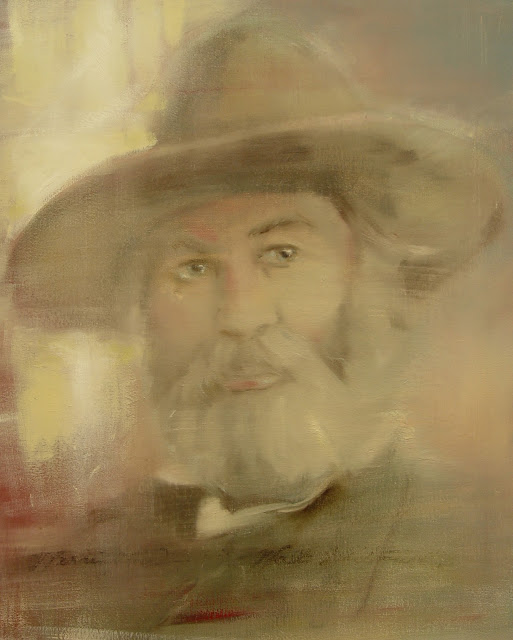Happy Birthday Walt Whitman

by Gregg Chadwick Gregg Chadwick The Wound-Dresser (Walt Whitman, Washington D.C., US Civil War, 1865) 30” X 24” oil on linen 2011 "The eyes transcend the medium." -R.B. Morris (Poet, Musician, Songwriter) Walt Whitman's poetry is a continual source of inspiration for me. Whitman's life story is also deeply moving. In December 1862 Walt Whitman saw the name of his brother George, a Union soldier in the 51st New York Infantry, listed among the wounded from the battle of Fredericksburg. Whitman rushed from Brooklyn to the Washington D.C. area to search the hospitals and encampments for his brother. During this time Walt Whitman gave witness to the wounds of warfare by listening gently to the injured soldiers as they told their tales of battle. Whitman often spent time with soldiers recovering from their injuries in the Patent Office Building (now home to the National Portrait Gallery and Smithsonian American Art Museum), which had been converted into a hospi...


